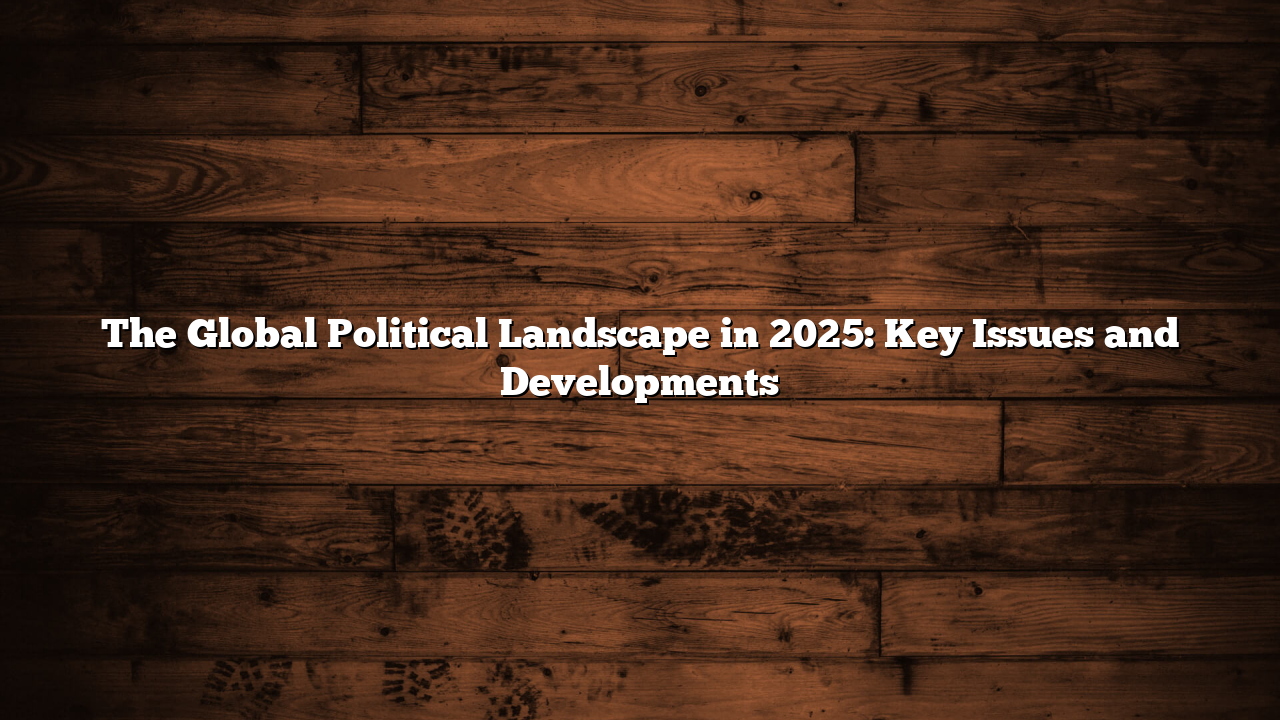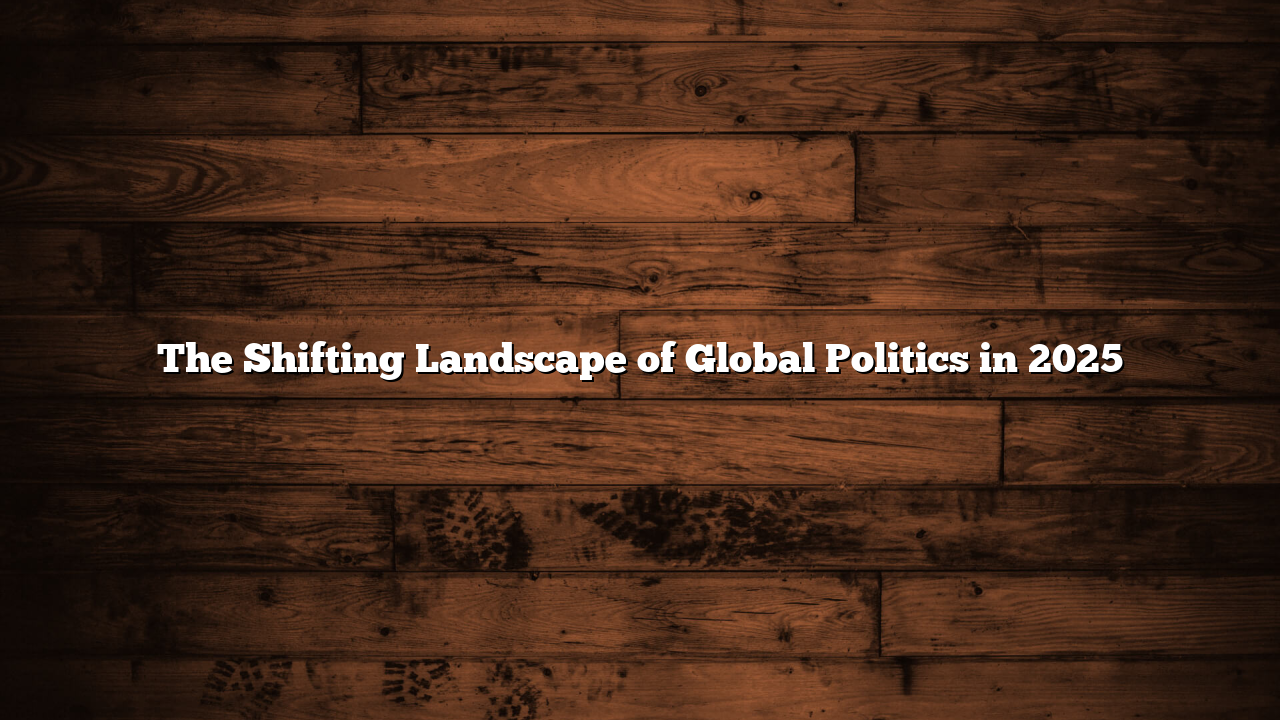Politics in 2025 continues to be shaped by a rapidly evolving world, with major elections, diplomatic tensions, and policy shifts affecting global stability. From the United States and Europe to Asia and the Middle East, leaders are navigating economic challenges, security concerns, and climate policies. This article explores some of the most significant political events and trends influencing international affairs today.
U.S. Politics: A Pivotal Election Year
The United States is at the center of political attention as it prepares for the 2025 presidential election. With economic recovery, healthcare, immigration, and foreign policy as top priorities, both Democratic and Republican candidates are campaigning vigorously.
The Biden administration has focused on climate initiatives, economic growth, and international diplomacy, but challenges such as inflation and border security remain critical issues for voters. Meanwhile, opposition candidates are emphasizing tax reforms, crime prevention, and a more aggressive stance on international relations. The outcome of this election will have far-reaching effects on both domestic policies and America’s role on the global stage.
Europe: Rising Nationalism and Economic Struggles
European politics in 2025 is marked by growing nationalism and economic uncertainty. Countries such as France, Germany, and Italy are witnessing political shifts as leaders grapple with inflation, energy security, and immigration policies.
The European Union faces internal divisions, with some member states pushing for stronger border controls and trade protections, while others advocate for more unity and cooperation. Brexit continues to influence the UK’s economy, with ongoing debates over trade policies and financial regulations. As European nations prepare for various national elections, the continent’s political future remains uncertain.
China and the U.S.: A Complex Relationship
The rivalry between China and the United States continues to define global geopolitics. Trade disputes, technology competition, and military activities in the Indo-Pacific region are fueling tensions between the two superpowers.
The Biden administration has maintained sanctions on Chinese technology firms, citing cybersecurity risks, while China has expanded its economic influence through infrastructure projects in Asia, Africa, and Latin America. The situation in Taiwan remains a critical issue, with both nations increasing their military presence in the region. Despite these tensions, diplomatic negotiations continue on issues such as climate change, trade agreements, and regional security.
The Middle East: Diplomatic Shifts and Security Concerns
The Middle East remains a hotspot for political and security developments. Iran’s nuclear ambitions continue to be a concern for Western nations, with ongoing negotiations over a revised nuclear deal. Meanwhile, Saudi Arabia and the United Arab Emirates (UAE) are focusing on economic diversification, investing in technology, renewable energy, and tourism.
Israel’s relations with neighboring Arab nations have seen both progress and challenges, with diplomatic efforts continuing under the Abraham Accords. However, yokubet between Israel and Palestine persist, with periodic clashes affecting regional stability. Additionally, conflicts in Syria and Yemen remain unresolved, despite international efforts for peace.
Russia and Ukraine: The Ongoing Conflict
The war between Russia and Ukraine, which began in 2022, continues to impact global politics and economics. Ukraine has received military and financial support from Western nations, while Russia has faced increasing sanctions and international isolation.
The conflict has led to energy supply disruptions, particularly in Europe, which has accelerated the transition toward renewable energy sources. Peace negotiations remain difficult, with both sides unwilling to compromise on territorial and security issues. The war’s outcome will shape global security policies for years to come.
Climate Change and Political Action
Climate change remains a top issue in global politics, with nations facing pressure to implement stronger policies to combat environmental damage. The United Nations Climate Summit has pushed countries to commit to carbon reduction targets, but debates over energy policies and economic costs continue.
While some nations invest heavily in renewable energy and electric vehicles, others remain dependent on fossil fuels. Developing countries are calling for financial assistance from wealthier nations to support sustainable initiatives. As extreme weather events become more frequent, governments worldwide are struggling to balance economic growth with environmental responsibility.
The Future of Global Politics
As 2025 unfolds, political leaders must navigate complex challenges, from economic instability and military conflicts to climate policies and technological advancements. The outcome of elections, international negotiations, and diplomatic efforts will shape the global order for years to come.
With rising nationalism, geopolitical rivalries, and environmental concerns, cooperation and strategic decision-making will be essential for ensuring stability in an increasingly uncertain world.
The Global Political Landscape in 2025: Key Issues and Developments











Leave a Reply